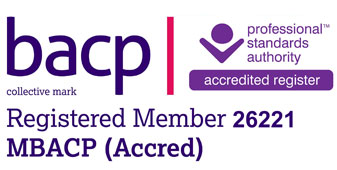Trauma/Post-Traumatic Stress Disorder/EMDR Therapy
When we go through a traumatic experience, our brain may remember it differently to other memories. This can cause symptoms such as flashbacks, intrusive thoughts, feelings of guilt, moodiness and isolation, insomnia or difficulty concentrating. EMDR or other forms of trauma therapy can help your brain integrate the memory so that it no longer causes these problems.
Post -Traumatic Stress Disorder (PTSD) is an anxiety disorder caused by very frightening or distressing events. While some cases surface quickly after the stressful incident, others may take years or even decades to develop. It is estimated that one in three serious traumas will result in PTSD. However, it could be less.
Psychotherapy is recommended by The National Institute for Health & Care Excellence (NICE), as the first treatment for those with PTSD. In cases that develop quickly after the traumatic event, Eye Movement Desensitisation and Reprocessing treatment (EMDR), as well as cognitive behavioural therapy (CBT), have been found to be especially effective (see below). Medication may also be prescribed in severely debilitating cases.
How can counselling help with PTSD?
EMDR therapy begins by taking a thorough history of the client and a preparation phase which involves creating self-soothing activities and building positive resources. The distinctive technique employed by EMDR practitioners is bilateral stimulation. That means that the brain is activated on alternating left – right – left sides by various means via the body. This can be by moving the eyes from right to left, by playing a simple sound in alternating ears or by tapping gently on different sides of the body such as on alternate knees, shoulders or hands. This bilateral stimulation is thought to help the brain to process information which has got stuck due to emotional and sensory overload. EMDR is often very effective for trauma, and especially can be successful as a ‘quick fix’ for one-off traumas such as a car accident. If the trauma was repetitive and long term it is of course more complex and will likely take longer to resolve.
What can EMDR be used for?
In addition to its use for the treatment of Post-traumatic Stress Disorder, EMDR has been successfully used to treat: Anxiety and panic attacks , depression , stress , phobias , sleep problems , complicated grief, addictions, pain relief, phantom limb pain , self-esteem and performance anxiety.
Can anyone benefit from EMDR?
EMDR can accelerate therapy by resolving the impact of your past traumas and allowing you to live more fully in the present. It is not, however, appropriate for everyone. The process is rapid, and any disturbing experiences, if they occur at all, last for a comparatively short period of time. Nevertheless, you need to be aware of, and willing to experience, the strong feelings and disturbing thoughts, which sometimes occur during sessions.

Annette Maylam
BA (Hons) MBACP (Accred) Counsellor & Psychotherapist

Your First Appointment
Individual therapy - £70 | EMDR Therapy -£80 | Couples Therapy - £90
Before making the first appointment I recommend that we have a brief telephone conversation to discuss what you need help with. Following this we will meet for an assessment appointment where I will gather further information about what you have been experiencing and relevant information about your life. Depending on the issues, we can agree how many sessions you might need. Skype sessions are also available but only after initial face-to-face meetings.
If you would like to arrange an appointment for an initial meeting please get in touch by calling or sending an email:
- Telephone: 0208 543 8503
- Mobile: 07968 721 061
- Email: amaylam62@hotmail.co.uk
If I cannot answer your call it is safe to leave messages and if you wish me to call you back please leave your name, phone number and a convenient time. Similarly, I will always respond to emails as soon as I can.